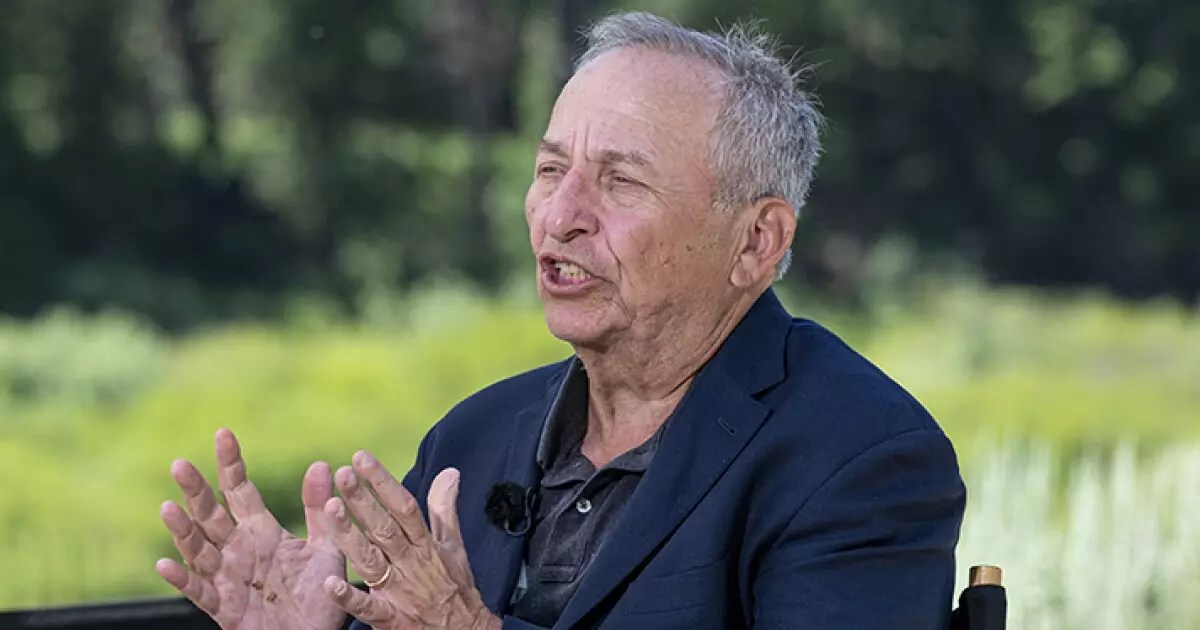The enduring debate over the Federal Reserve’s role in shaping the economic future of the United States is heating up once again, especially as former Treasury Secretary Lawrence Summers weighs in on the impending selection of a new Fed Chair by Donald Trump. While many hope for a candidate that embodies stability and respectability, the political climate and the volatile discourse from the Trump administration raise crucial questions about whether appointing a mainstream figure can indeed quell both market concerns and public dissent.
Summers has posited that Trump will choose a candidate that could garner the approval of “fair-minded observers on both sides.” This assertion, however, is problematic. The ideal of a “reasonable person” may be a luxury we can no longer afford in today’s polarized political environment. With Trump’s own erratic behavior influencing almost every decision, are we confident that a centrist appointment will align with broader economic goals, or is it merely a façade that will crumble once economic pressures mount?
Market Realities and Political Posturing
Trump’s friction with Jerome Powell primarily stems from the Fed’s decisions regarding interest rates. His unwavering critique, calling for cuts that he believes could stimulate growth, reflects not just economic pragmatism, but perhaps, more ominously, a political strategy aimed at shielding his administration from accountability. The notion that Trump’s desire for lower interest rates is a clever ruse to redirect blame in the event of an economic downturn is compelling. Summers suggests this may be less about a robust “economic vision” and more about crafting a narrative that finds scapegoats outside the Oval Office.
This is an alarming trend that will be difficult for any incoming Fed Chair to combat. The central bank, which prides itself on independence, may find itself increasingly caught in a web of political maneuvering, robbing it of the genuine autonomy necessary to respond effectively to economic turbulence. Such dynamics raise a critical question: Can the integrity of the Federal Reserve survive amidst politically motivated pressures?
The Selection Process: Who’s in the Running?
As we turn our gaze to potential candidates to replace Powell, figures like Scott Bessent and Kevin Warsh come into play. While each boasts impressive credentials, the underlying selection process must be scrutinized. Will Trump ultimately compromise and select someone who may be deemed acceptable to the Senate and the market, or will he pick someone whose loyalty is guaranteed?
Given recent history, it’s vital to recognize that an acceptable candidate on paper could still be unfit in practice. If Trump’s nominee is merely a “mainstream” figure who adheres to traditional economic policies without the backbone to resist political pressures, we could be setting ourselves up for a period of instability. This raises the stakes for thoughtful governance; we need a Fed Chair who will prioritize economic stability over appeasing a president determined to shape the dialogue to his advantage.
Impending Economic Realities
Summers has pointed out the negative implications of Trump’s trade policies and tariffs, suggesting that these will exert significant pressure on the American economy. His allusion to the economic forecasts released by the Fed indicates that while some sectors are seeing productivity boosts (partially thanks to AI advancements), soaring inflation and rising unemployment cast a long shadow on the overall picture. The Fed is more aware than ever that they may need to navigate an environment peppered with adverse shocks—much of which can be traced back to the current administration’s decisions.
While it’s easy to wish for a steady hand at the helm of the Fed, the realities of Trump’s political calculus beg for skepticism. The ticking clock towards the next financial crisis continues, and the need for a responsible economic approach grows more urgent. Whether a prudent path can emerge from Trump’s imminent selection remains uncertain, reflecting an American economy at a crossroads.
In this complex landscape, the implications of the next Fed Chair will resonate far beyond financial markets, touching upon the very fabric of politics and governance in America. We may indeed be witnessing a pivotal moment for fiscal policy—one that demands acute awareness and unwavering vigilance in pursuit of sound economic stewardship.


Leave a Reply